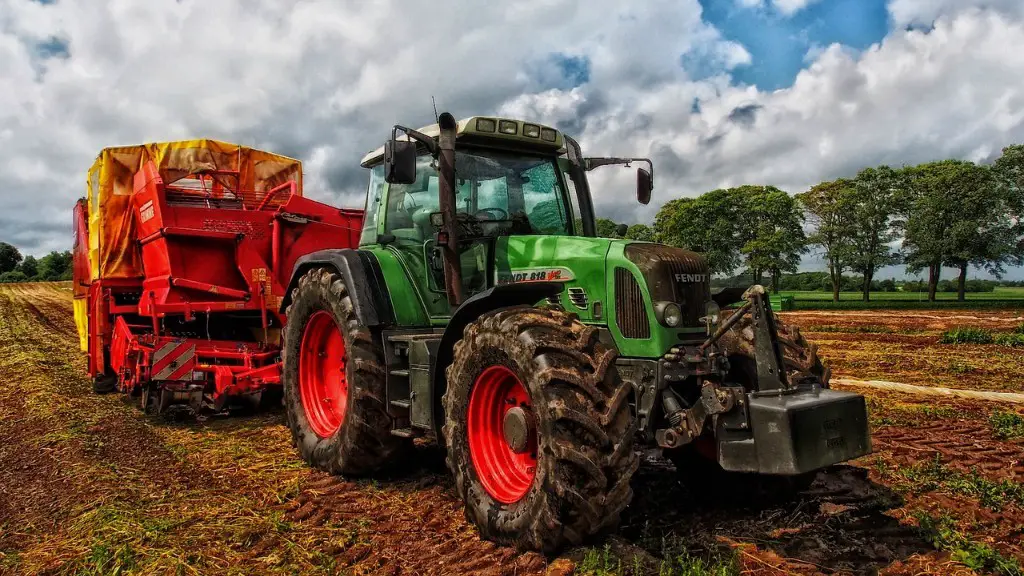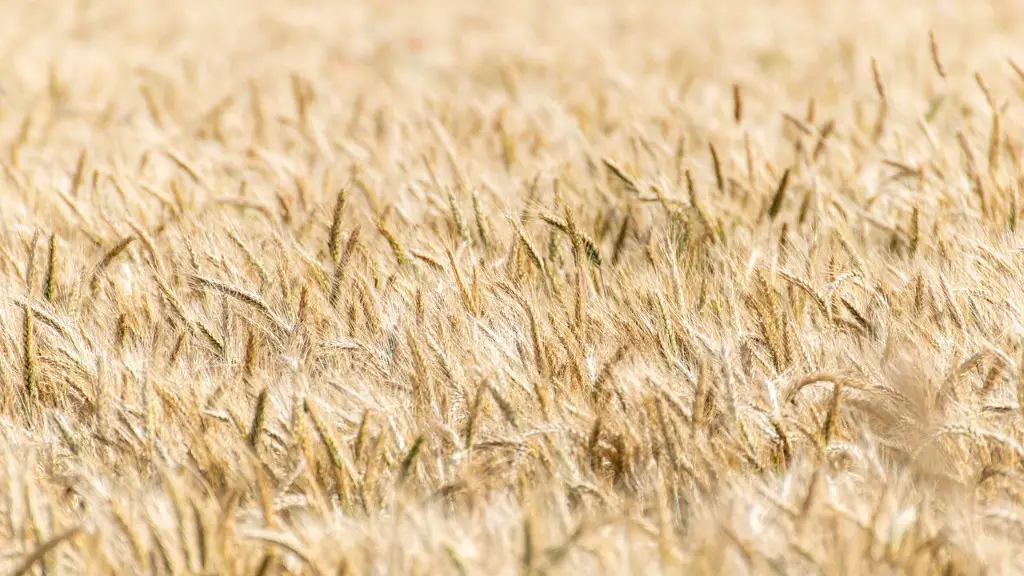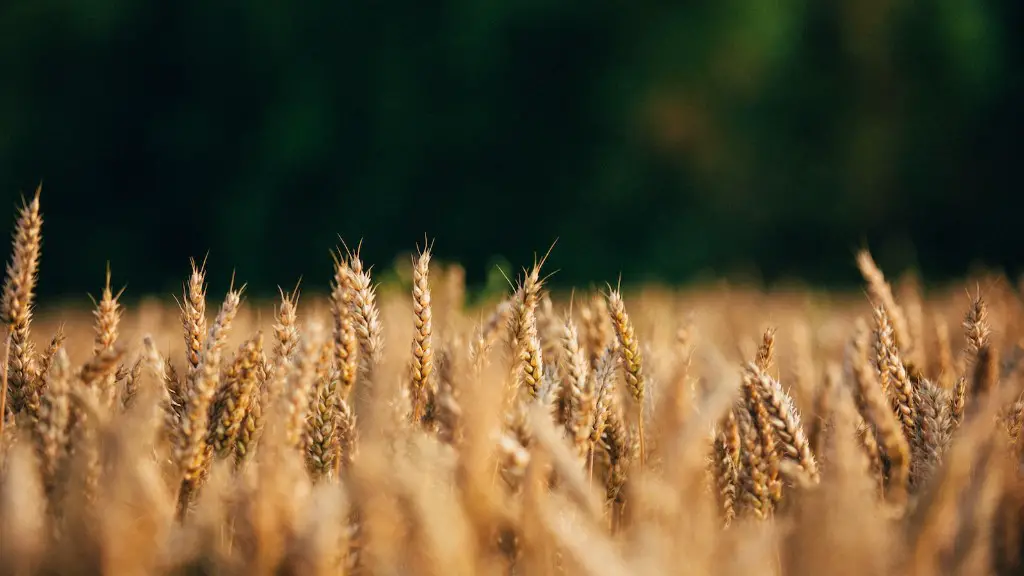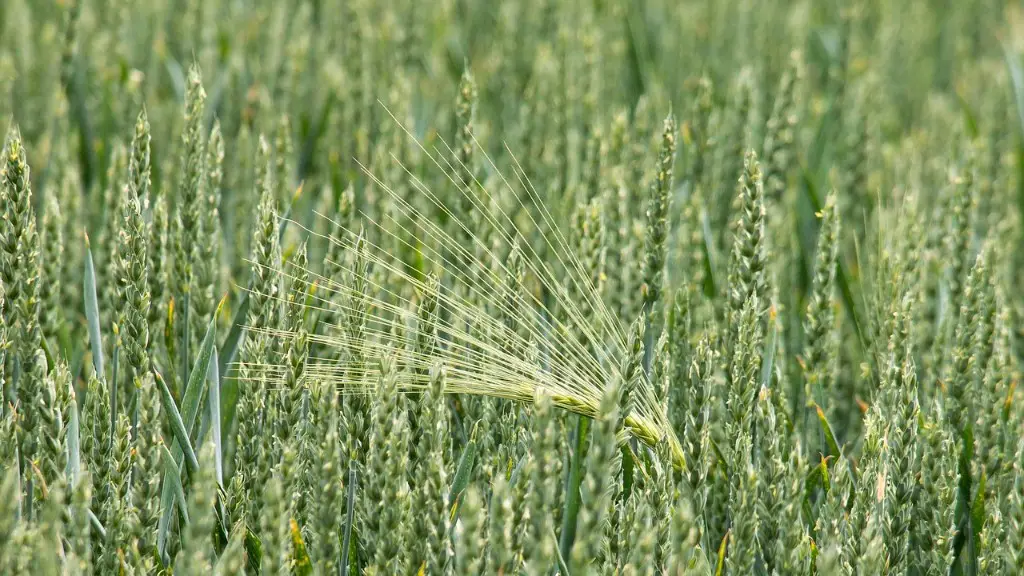Organic agriculture has been shown to have a number of benefits for sustainable development. Firstly, it is less damaging to the environment than conventional farming, due to its reduced reliance on chemical inputs. This also means that it is better for the health of both farmers and consumers. Secondly, organic agriculture can help to build more resilient ecosystems, which are better able to withstand the effects of climate change. Finally, organic agriculture can improve the livelihoods of small-scale farmers, as well as providing food security in the face of global challenges such as population growth and climate change.
Organic agriculture helps to build and maintain healthy soils, which are vital for sustaining plant growth and productivity. Soils that are managed organically are able to store more carbon, which helps to reduce greenhouse gas emissions and combat climate change. Organic agriculture also promotes the use of renewable resources and sustainable practices, which helps to protect the environment and natural resources.
How does organic farming helps in sustainable development?
Organic agriculture is a form of agriculture that relies on natural processes, rather than the use of artificial chemicals, to enhance crop growth and yields. These methods, together with cultivation of a diverse range of crops, stabilize the delicate ecosystems in the tropics and reduce drought sensitivity and pest infestation. Organic agriculture reduces the risk of yield failure, stabilizes returns and improves the quality of life of small farmers’ families.
Organic farming is a type of agriculture that focuses on using natural inputs and processes, while sustainable farming is an agricultural system that focuses on the long-term health of the environment.
What are 3 benefits of sustainable agriculture
There are a number of ways to increase profitable farm income while promoting environmental stewardship and enhancing quality of life for farm families and communities. One way is to increase production for human food and fiber needs. This can be done by increasing the yield of crops or by producing more valuable crops. Another way is to diversify the farm’s products and services. This can be done by adding value-added products or by offering services such as agritourism.
Organic farming is more sustainable because it uses less resources, it doesn’t pollute the environment, and it increases soil fertility. By using less resources, organic farmers are able to preserve the environment for future generations. Additionally, organic farming doesn’t require the use of harmful chemicals, which can pollute the air, water, and soil. Finally, organic farming can help to improve the quality of the soil, which can reduce erosion and help to protect wildlife.
What are the 10 benefits of organic farming?
Organic farming is a form of agriculture that focuses on producing food using organic means. This type of farming uses natural methods to grow and process food, without the use of synthetic chemicals or GMOs.
There are many benefits of organic farming, both for the environment and for the farmers and consumers. Organic farming is environmentally friendly because it does not use synthetic chemicals or GMOs, which can harm the environment. Organic farming also promotes sustainable development, as it is a more natural and efficient way of producing food.
Organic food is also healthy and tasty, as it is grown without the use of synthetic chemicals. Furthermore, organic farming is an inexpensive process, as it uses organic inputs that are readily available. This type of farming also generates income, as it can be sold at a premium price. Moreover, organic farming generates income through exports, as organic food is in high demand overseas.
Finally, organic farming is a source of employment, as it creates jobs for farmers and farm workers.
Organic food is not only healthier for us, but it is also better for the environment. Organic farming practices help to conserve water, reduce pollution, and promote soil and wildlife health. By choosing organic foods, we can help to create a more sustainable food system.
Is organic farming truly sustainable?
Organic farming is widely considered to be a far more sustainable alternative when it comes to food production. The lack of pesticides and wider variety of plants enhances biodiversity and results in better soil quality and reduced pollution from fertilizer or pesticide run-off.
Sustainable agriculture is a type of farming that focuses on producing food in a way that is environmentally friendly, profitable, and provides social and economic equity. The three goals of sustainable agriculture are environmental health, economic profitability, and social and economic equity. To achieve these goals, sustainable farmers use a variety of practices, including crop rotation, cover crops, and conservation tillage.
What are 5 benefits of sustainable farming
There are many benefits to sustainable agriculture including reducing costs, preventing pollution, saving energy, preventing soil erosion, being animal-friendly, promoting biodiversity, and improving food production with less waste and public health.
The environment is important to everyone, and farmers have a unique role to play in preserving it. By adopting sustainable practices, farmers will reduce their reliance on nonrenewable energy, reduce chemical use and save scarce resources. Keeping the land healthy and replenished can go a long way when considering the rising population and demand for food.
What are the advantages of organic farming?
When it comes to organic vs. conventional farming, it’s important to consider the pros and cons of each method. Organic farming has many benefits, including fewer pesticides, reduced soil erosion, decreased nitrate leaching, and recycling of animal wastes. However, these benefits are often offset by higher food costs and lower yields.
There are many advantages to organic farming systems. They have been found to match conventional yields after a five-year transition, outperform conventional farming in years of drought by up to 40%, earn 3–6 times greater profit for farmers, leach no toxic chemicals into waterways, and use 45% less energy.
How does organic relate to sustainability
Organic agriculture is a type of farming that does not use synthetic pesticides or fertilizers. This makes it a very sustainable form of agriculture in many ways. Organic farms have more fertile soil, use less energy, and sequester more carbon.
Organic farming has a significantly lower carbon footprint than conventional farming because it does not use fossil fuel-based fertilizers or synthetic pesticides. These farm chemicals are energy intensive to produce, and their use contributes to greenhouse gas emissions. By switching to organic farming, we can help to reduce these emissions and slow the effects of climate change.
Is organic agriculture really better for the environment?
Organic farming is better for the environment because it is more sustainable and has less of an impact on the ecosystem. Organic farmers use fewer pesticides and chemicals, which can leach into the soil and potentially contaminate groundwater. They also rotate their crops to improve soil health and prevent soil erosion.
Sustainable agriculture practices encompass a wide range of approaches and techniques. Some of the key practices include rotating crops and embracing diversity, planting cover crops and perennials, reducing or eliminating tillage, applying integrated pest management (IPM), integrating livestock and crops, adopting agroforestry practices, and managing whole systems and landscapes.
Each of these practices can help to improve the sustainability of our agricultural systems. For example, rotating crops and planting cover crops can help to improve soil health, reduce erosion, and promote more diverse and resilient ecosystems. Reducing tillage can help to preserve soil structure and reduce energy inputs, while IPM can help to reduce reliance on synthetic pesticides and improve crop yields.
Integrating livestock and crops can have numerous benefits, including improved soil health, increased nutrient cycling, and reduced crop pests and diseases. Adopting agroforestry practices can help to create more diverse and productive ecosystems, while managing whole systems and landscapes can help to ensure that our food production systems are more resilient to environmental changes.
Sustainable agriculture practices offer a promising way to improve the long-term productivity and sustainability of our agricultural systems.
What are 2 things that agriculture can do to create sustainable farms
It is important to reduce the use of chemical fertilizers and pesticides in order to protect soil and water sources. Agtech can help increase yield in a less damaging way, when combined with traditional, local knowledge.
The primary goals of sustainable agriculture are to protect the environment and natural resources, while still maintaining the economic viability of farming operations. This means that farmers need to be compensated fairly for their work in order to continue producing food and contributing to the well-being of the community. Sustainable agriculture also seeks to produce sufficient high-quality and safe food for everyone.
Final Words
Organic agriculture contributes to sustainable development in several ways. First, it uses less energy than conventional farming methods, which reduces greenhouse gas emissions and helps to combat climate change. Second, organic farms generally use less water than conventional farms, which helps to preserve water resources. Third, organic agriculture relies on natural processes and ecosystems to function, which helps to protect and restore biodiversity. Finally, organic agriculture can help to regenerate soil health, which is essential for long-term food production.
Organic agriculture is a key contributor to sustainable development. It reduces our reliance on synthetic inputs, such as fossil-fuel based fertilizers and pesticides, and instead relies on renewable resources and ecological processes. Organic agriculture also builds soil health, which improves water and air quality and helps sequester carbon. In addition, organic agriculture supports local economies and promotes fair working conditions. By choosing organic products, we can all play a part in supporting sustainable development.





